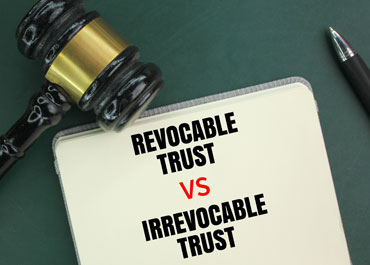
After creating a trust, your next steps are to ensure it has been funded. Whether you have an existing trust or are starting the estate planning process, Legacy Law Centers can help you. When it comes time to fund your revocable or irrevocable trust, there are several steps to take. Keep in mind that funding your trust now while you are able is essential to avoid the probate process and court interference. If you don’t fund your trust, all those good intentions and wishes expressed in your trust document won’t mean anything! What is Trust Funding? Funding your trust is the process…Read More

A trust is an arrangement between a grantor, a trustee or successor trustee, and a beneficiary. A trust can protect you, your family, and your property more than a traditional last will and testament. If you are considering a trust, continue reading. In this blog post, we want to help you understand the benefits and disadvantages of creating a trust. We’ll also discuss each type and its advantages and disadvantages. If you are considering a trust, by the end of this post, you will understand how they are created and whether having one suits you or those close to you.…Read More

Using a trust agreement is an excellent estate planning tool for many families. It allows you to control and protect your estate during your lifetime and after you’re gone. It also creates many questions about what happens when property is owned by a trust. When you create a living trust, it’s important to know who is responsible for the management of the trust and who has access to the trust. The person who creates a trust agreement is called the grantor. They have the authority to fund a trust with property, transfer assets, and dictate the terms of the trust.…Read More

If you’re in the process of reviewing an existing trust or creating a new one, it’s crucial to recognize the significant role that a trustee plays. They are responsible not only for managing trust-related affairs but also for safeguarding and providing for your loved ones. What Is A Trust? A trust refers to a legal agreement between the owner of assets and another party (the trustee), who assumes the responsibility of managing these assets on behalf of a third party (the beneficiary). The terms and conditions of this agreement are typically outlined in a written document known as the trust…Read More

Preparing an estate plan can be challenging, especially for wealthy families. A revocable trust is one of the most popular tools to protect assets. It can ensure your wishes are followed after you pass away. But what exactly is a revocable trust? What benefits does it offer to families, including those of high net worth? How does it work, and what considerations should be considered when setting up a revocable trust? Let’s dive in so you can make an informed decision about including a revocable trust in your estate plan. What is a Revocable Living Trust? A revocable trust is a legal tool that allows…Read More

On behalf of our legal team at Legacy Law Centers, we would like to congratulate Attorney Sam Mansoor for being named a Qualified Master Counselor in Trusts and Estates Practice (2022-2024) by the Virginia Law Foundation/Virginia CLE® Designations Program. He is in the inaugural class and the only certified master in Trusts and Estates in Virginia. Founded in 1960, Virginia CLE® is the educational branch of the Virginia Law Foundation (an IRS 501(c)3 charitable organization). Virginia CLE® is the main provider of continuing education to the state’s legal community and has been continuously voted the #1 continuing legal education provider by Virginia Lawyers…Read More

Confused about the differences between a will and a trust? If so, you are not alone. While it is always wise to contact experts like us, it is also important to understand the basics. We’ve prepared an easy-to-read reference guide below to help you get up to speed as soon as possible! Advantages Of A Revocable Living Trust Over A Will Avoid conservatorship and guardianship: A revocable living trust allows you to name your spouse, partner, child, or another trusted person to manage money and property you placed in a trust, should you become unable to manage your own affairs. A…Read More

A properly funded trust allows you to avoid probate, minimize taxes, organize and maintain control of your estate, and provide for yourself and your heirs. In its simplest terms, a trust is a book of instructions wherein you tell your trusted people what to do and when to do it. While there are many types of trusts, the major distinction between trusts is whether they are revocable or irrevocable. Let us take a look at both so you will have the information you need: Revocable Trust A revocable trust is also known as a “living trust” because it can benefit you during your…Read More

Our dedicated legal team at Legacy Law Centers understands that there is a wide range of trusts you can include in your estate plan. And while choosing the right type of trust to protect your assets can seem daunting, we are here to listen to your concerns and devise a plan that is tailored to your unique situation. Below, we discuss six common trusts to help you gain a better understanding of your options. Special Needs Trust A special needs trust allows you to leave money or property for the benefit of an individual with special needs without disqualifying them from government benefits. Under federal…Read More

While many of the people who visit our law firm understand that having a comprehensive estate plan is smart if you want to protect your future and family, we also encounter those who don’t follow through and fail to start planning. But do you know what happens if die without crucial estate planning tools? Here is what will generally happen if you die without a will or trust, also known as interstate, and what will happen with a will, and with a revocable living trust. For this example, we assume you have two children, but no spouse: Intestate If you die intestate, then all of the accounts and…Read More